Workshop Research-led Performance| Composer – Instrument – Performer | Violoncello Solo in the Second Half of the 20th Century
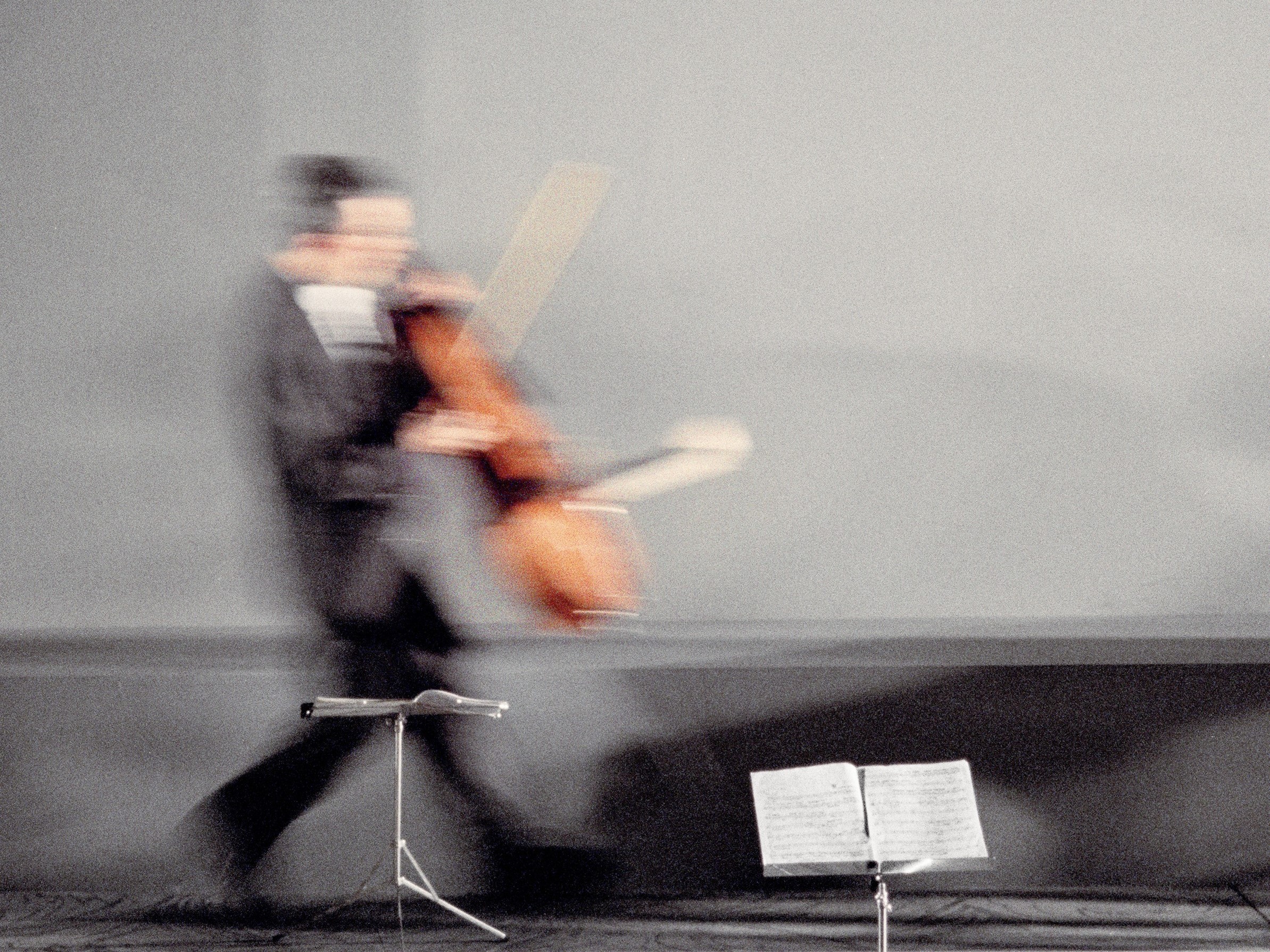

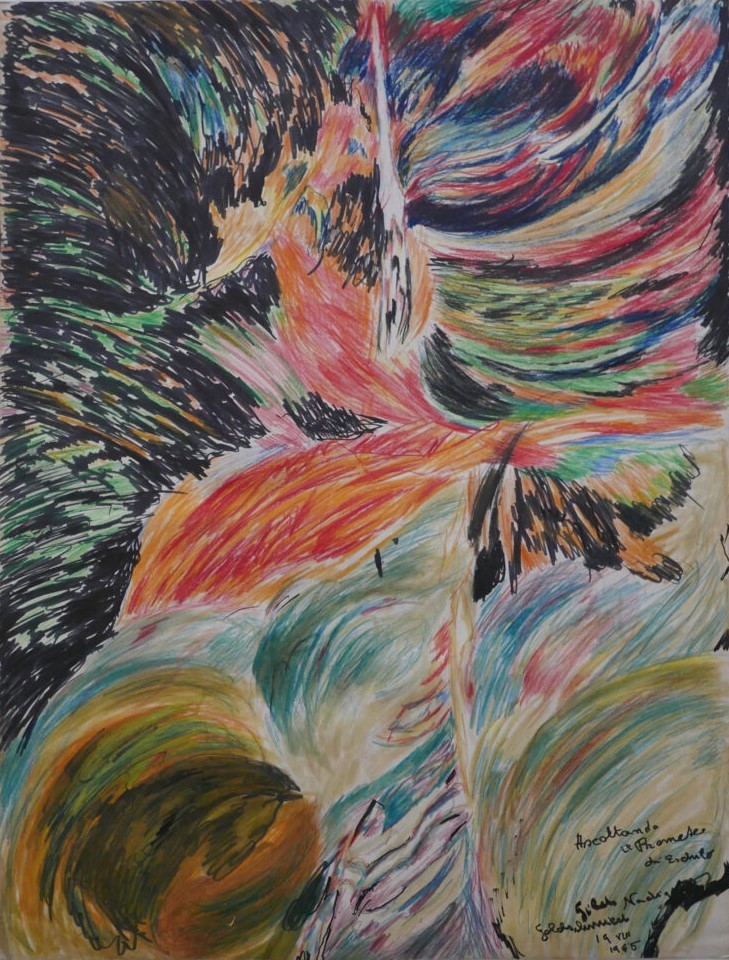
With this event, the Institute for Music participates in the celebrations of the centenary of Luigi Nono’s birth and renews its collaboration with the Fondazione Archivio Luigi Nono. The two days are in direct concurrence with the performance of one of the composer’s greatest creations: Prometeo. Tragedia dell’ascolto.
The conference part is dedicated to recent musicological studies on this work. Esteban Buch, Pauline Driesen, Jörn Peter Hickel, Jonathan Impett, Matteo Nanni, and Veniero Rizzardi will discuss the following aspects: the myth of Prometheus in 20th century culture and music, the choice and setting to music of the texts, the planning of the acoustic space, the role of live electronics, the stages of the compositional process, and the philosophical foundations of the work. In the central session, Marco Angius, Roberto Fabbriciani, Giancarlo Schiaffini and Alvise Vidolin will examine performance issues: the placement of instrumental and vocal groups in the space of San Lorenzo the church, the management of live electronics equipment, the correct rendering of soloist and choir parts, the overall sound balance. Joseph Auner and Michela Garda will participate as discussants.
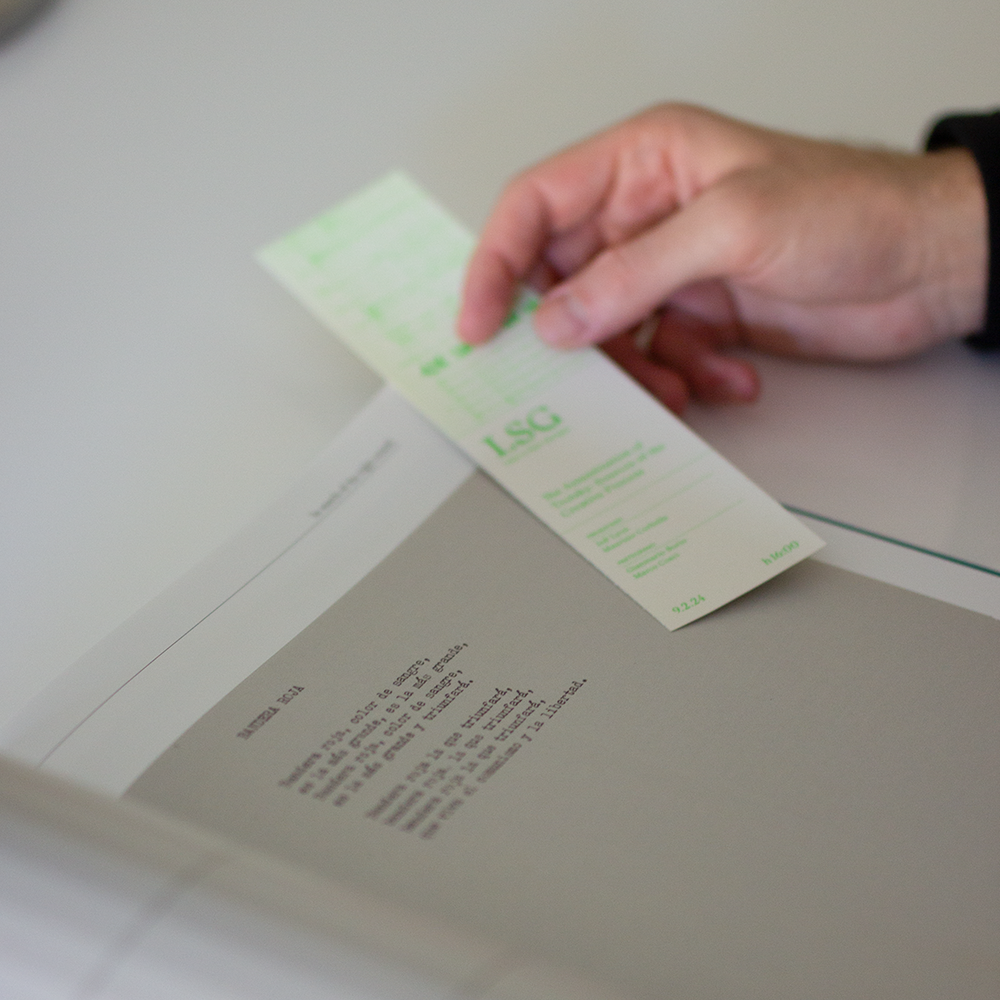
November sees the resumption of the encounters of Libri a San Giorgio, the cycle of presentations dedicated to the Fondazione Giorgio Cini’s new publications, now at its eighteenth edition.
The first presentation, on 15 November, is devoted to Studi Vivaldiani, the annual journal of the Fondazione Giorgio Cini’s Italian Antonio Vivaldi Institute. The journal, published since 1980 and distributed worldwide, contains articles on the life and musical production of Antonio Vivaldi, as
well as on the musical, cultural, social and historical context in which the
‘Red Priest’ lived and worked.
The second event, on 25 January 2024, will feature the presentation of The Mediations of Music. Critical Approaches after Adorno. This book grew out of an event by the Accademia Musica le Chigiana on the occasion of the fiftieth anniversary of Adorno’s death (2019). The authors discuss problematic
junctures in the philosopher’s thought and show its potential. In any chapters, the opposite mediation – immediacy – which often plays a key role in mediation processes, is brought into play.
In the last event, on 9 February 2024, Egisto Macchi: The Assassination of Trotsky: Sources of the Creative Process, Marco Cosci (ed.), published by Brepols, will be presented, tracing Egisto Macchi’s creative process for the soundtrack of The Assassination of Trotsky directed by Joseph Losey (1972). Through a careful reading of the sources preserved in the Egisto Macchi archive at the Fondazione Giorgio Cini Institute of Music, and at the Joseph Losey Collection and the British Film Institute (London), the book sheds light on the initial partnership between Losey and Macchi, which continued over the following years
for the film Mr. Klein (1976).
[accordion][/accordion]
[accordion_entry title=”Programme Concert”]
[/accordion_entry]
[accordion][/accordion]
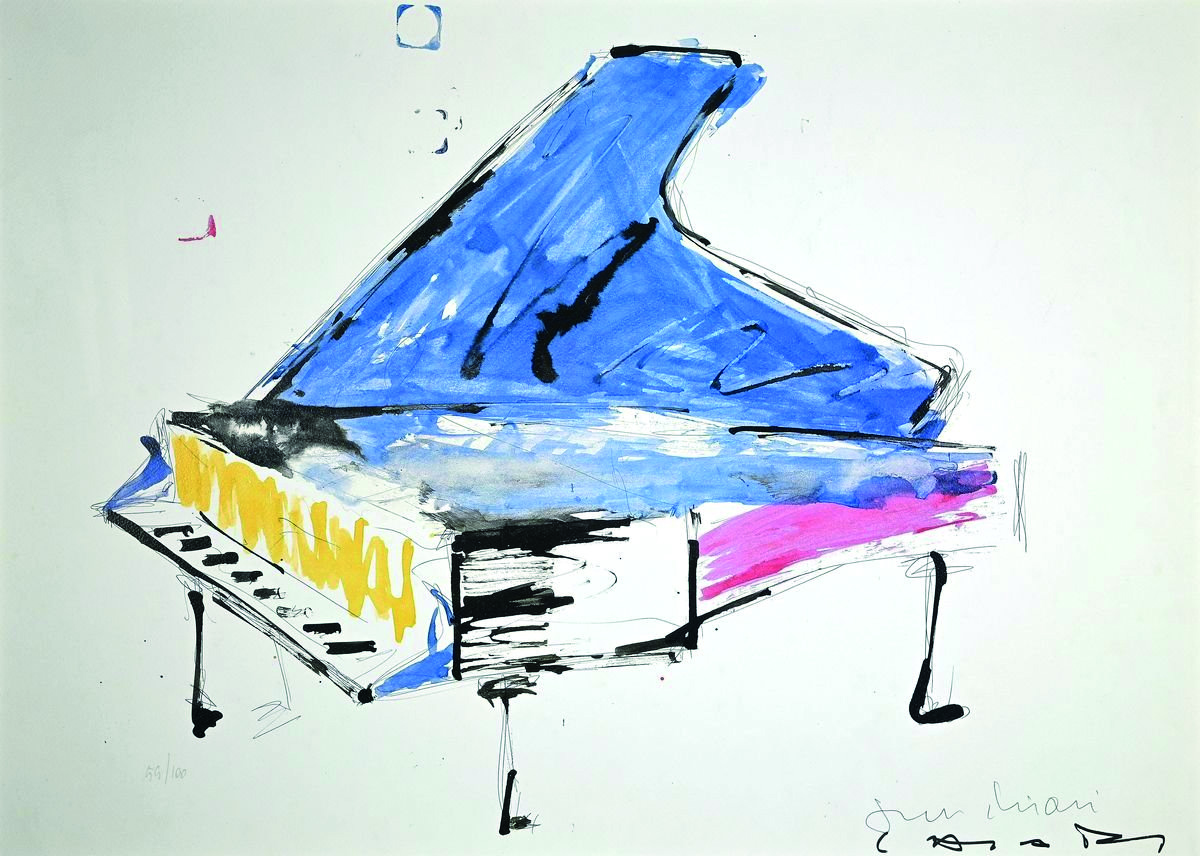
The aim of this day, organised by the Institute of Music, is an initial exploration of the relationship between painters and composers in a period rich in innovation in terms of construction techniques and the communicative channels of the arts, for which the terms seriality, informal, kinetic art
and Fluxus have been used. The interdisciplinary imprint of the topic is reflected in the composition of the panel of speakers. Marcello Aitiani will outline how visual artists and musicians come together. Daniela Tortora (Santa Cecilia Conservatory, Rome) will offer an overview of the cultural
periodicals of the 1960s and ’70s, in particular Marcatré. Patrizio Peterlini’s (Fondazione Bonotto) paper will move from graphic scores to exploring the impact of Fluxus aesthetics on musicians and figurative artists in Italy.
Pietro Misuraca (University of Palermo) will discuss the highlights of the Settimane Internazionali di Nuova Musica in Palermo, in particular the two painting exhibitions at the Galleria d’Arte Moderna (REVORT 1 and REVORT 2) and the magazine Collage. Paolo Somigli (University of Bolzano)
will reconstruct the stages that led to the birth of Gruppo 70, focusing on the role of Giuseppe Chiari, Sylvano Bussotti and Pietro Grossi in the intersection of artistic forms in Florence in the 1960s. Paolo Bolpagni (Fondazione Ragghianti) will investigate the iconic component in the scores of Aldo Clementi and Francesco Pennisi and will present the pictorial activity of Giovanni Pizzo and Lucia Di Luciano, former founders and exponents first of Group 63 and then of Operativo R, who collaborated with Pietro Grossi. The day will end with a concert by the mdi ensemble at the Auditorium “Lo Squero”.
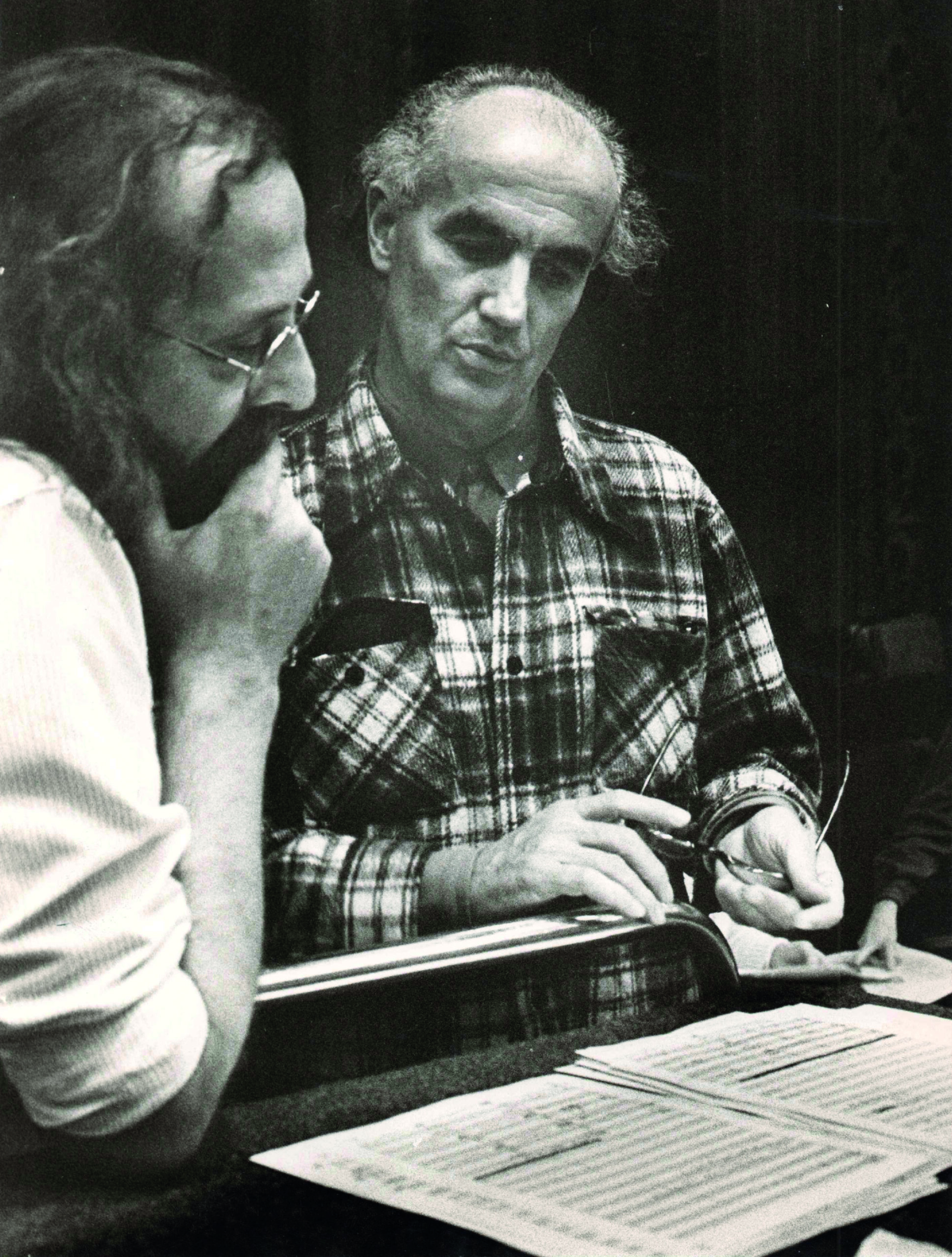
In the meeting organised by the Institute of Music, in conversation with Gianmario Borio, Giancarlo Schiaffini will retrace his career as a performer, improviser and composer. Since the mid-1960s, Schiaffini has been one of the protagonists of free improvised music: he took part in Mario Schiano’s
‘Gruppo Romano Free Jazz’; in 1970, he founded the Nuove Forme Sonore ensemble, which alternated interpretations of aleatory compositions and improvisation; later, he was part of the Gruppo di Improvvisazione Nuova Consonanza and collaborated with the leading protagonists of European improvised music, including the Globe Unity Orchestra and the Instant Composers Pool Orchestra. In the 1980s, Schiaffini played a key role in Luigi Nono’s compositions with live electronics, providing materials and performance techniques. The intertwining of the three (usually separate) roles of performer, improviser and composer makes Schiaffini a unique figure in the panorama of research and experimental music, and an indispensable reference for brass performance practices. At the end of the talk, Schiaffini will perform Sottile canto III by Edgar Alandia, Solo for tuba + Fontana Mix by John Cage, Luz by Domenico Guaccero and Post-Prae-Ludium per Donau by Luigi Nono.
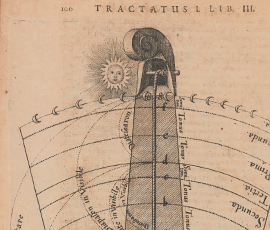
In concomitance with the Conference Occultural Transfers between North and South, organised by the Centre for Comparative Studies of Civilisations and Spiritualities, there will be a concert of mdi ensemble curated by the Institute of Music. The concert focuses on three composers whose works have multiple references to the Conference’s themes, particularly the spiritual, mystical and esoteric aspects of cultural and religious exchanges between Northern and Southern Europe.
Giorgio Cini Foundation, 18:00 – 19:00
Program:
Introduction by Gianmario Borio, director of the Institute of Music, Giorgio Cini Foundation
Jean Sibelius,
Malinconia for cello and piano op. 20 (12’)
Kaija Saariaho,
Cendres for flauto, cello and piano (10’)
Franco Oppo,
Trio III per flute, violin and piano (13’)
Kaija Saariaho,
Light and matter for violin, cello and piano (18’)
mdi ensemble:
Sonia Formenti, flute
Corinna Canzian, violin
Giorgio Casati, cello
Luca Ieracitano, piano
For more information visit the page of the Conference Occultural Transfers between North and South (1-2 November 2023).
This event is financed by the Giorgio Cini Foundation, the University of Oslo (UiO:Norden and NordForsk through ReNEW), and by the Centre for History of Hermetic Philosophy and Related Currents (HHP) of the University of Amsterdam.
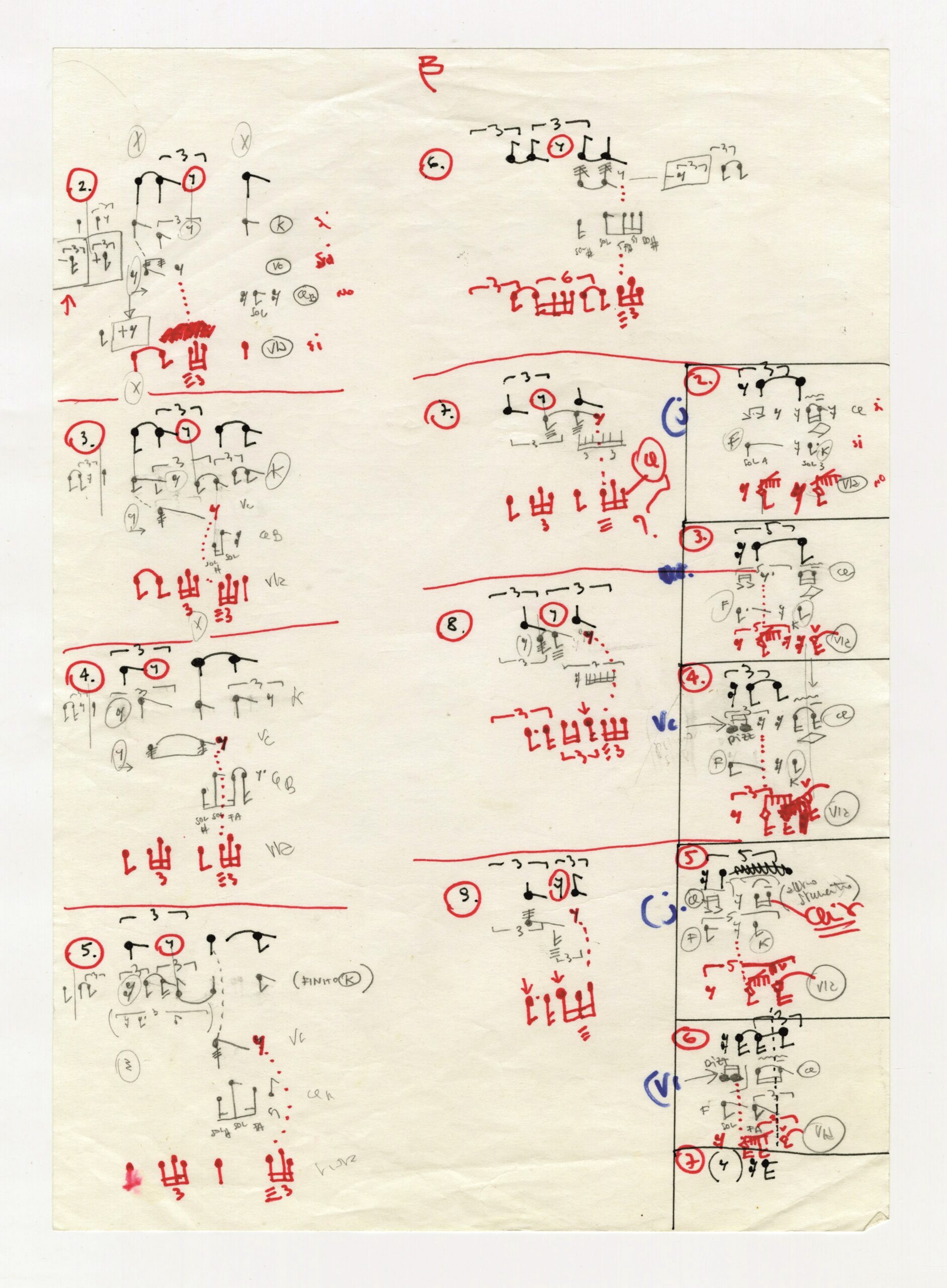
On the occasion of the sixtieth anniversary of the birth of Fausto Romitelli, who died prematurely in 2004, the Biennale Musica and the Institute of Music are dedicating a study day to the composer’s poetics, which will end with the complete performance of Professor Bad Trip. Issues concerning the
conception of the triptych and the sources of the compositional process, instrumental synthesis and spectral morphology, para-texts and the evocation of a ‘mental cinematography’ and the issues of performance will be addressed.
Participants: Alessandro Arbo, Oliver Korte, Luigi Manfrin, Nicholas Moroz and Jean-Luc Plouvier.
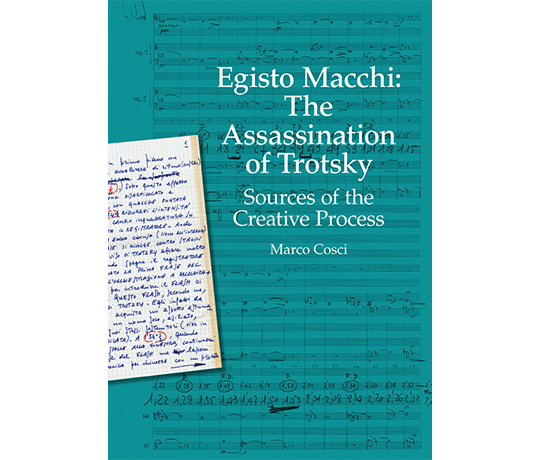
Egisto Macchi: The Assassination of Trotsky
Sources of the Creative Process
Series: The Composer’s Workshop, vol. 2
by Marco Cosci
Brepols Publishers, Turnau
This volume traces Egisto Macchi’s creative process for the soundtrack of The Assassination of Trotsky directed by Joseph Losey (1972). Through a close reading of the sources preserved at the Egisto Macchi Collection at the Institute of Music, Fondazione Giorgio Cini, (Venice) and at the
Joseph Losey Collection at the British Film Institute (London), the book sheds light on the early collaboration between Losey and Macchi, which continued over the following years for the film Mr. Klein (1976). Why did Losey choose this apparently unknown composer? How did an avant-garde
composer approach the film industry? What kind of audio-visual experience did Macchi and Losey explore through this film? To answer these questions, the volume deals with various aspects of the creative process, combining letters, notes, drafts, sketches and the final orchestral scores.
The introductory essay presents Egisto Macchi within the context of the Roman avant-garde and the cinematic environments of the ’60s and early ’70s. The volume is complemented by a wide selection of sources reproduced as facsimiles.
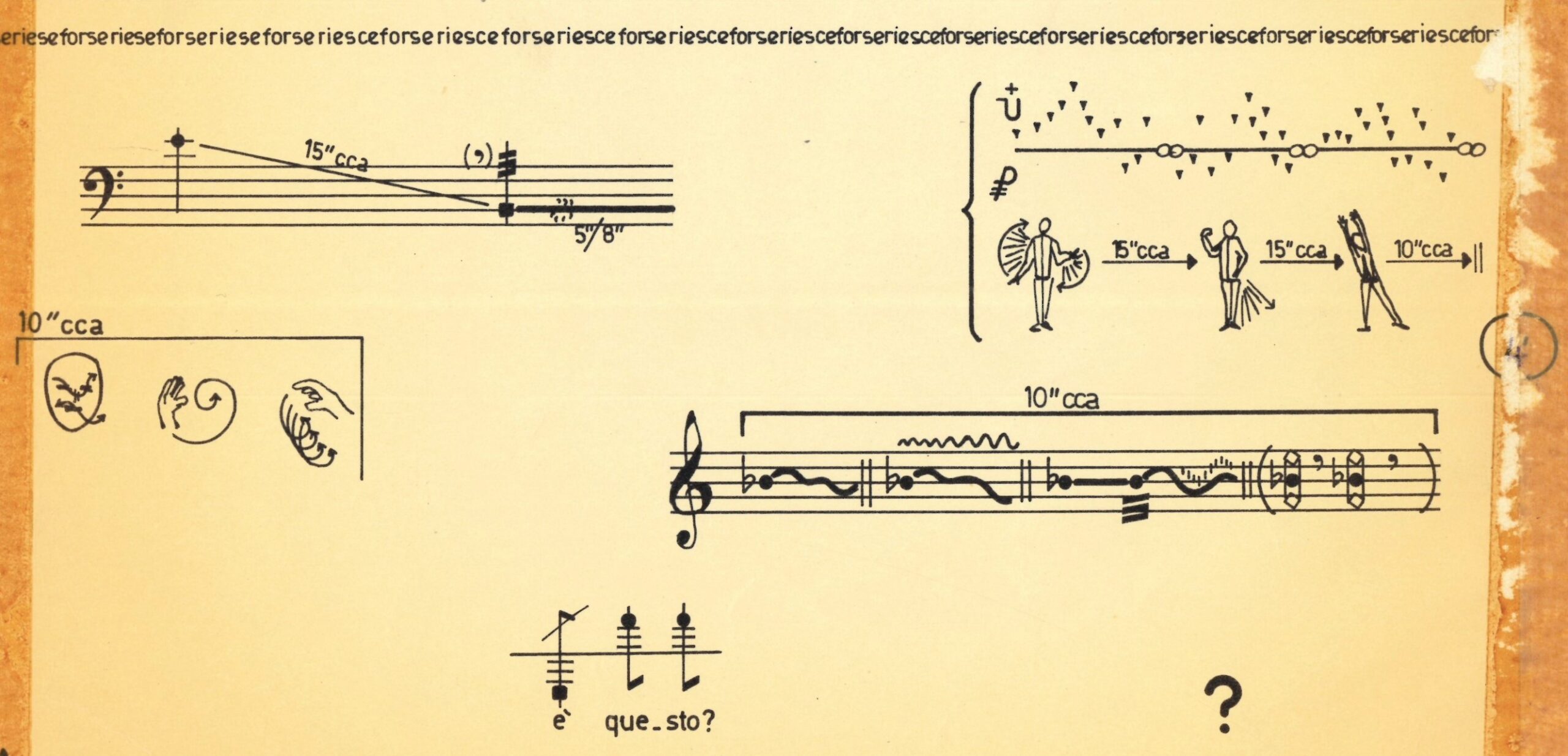
Articles
Perspectives
Documents and Reports
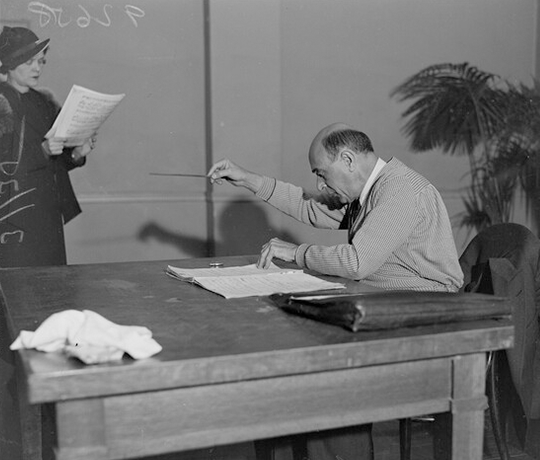
Arnold Schoenberg and the reception of his thought in the second half of the twentieth century is the focus of this second appointment of the Research-Led Performance cycle.
The origins, diffusion and differentiation of solo voice ensembles and instrumental ensembles with voice were the subject of a lecture that Gianmario Borio gave at an event in collaboration with the 2021 Music Biennale, significantly entitled Choruses. Drammaturgie vocali.
During this study day, organised by the Institute for Music, in collaboration with the Beaumont Consort and the “Benedetto Marcello” Conservatory in Venice, musicians and musicologists will compare Schoenberg’s pioneering composition to Giacomo Manzoni’s work on texts by Emily Dickinson.
Afterwards, the two works will be played in a performance by the Beaumont Consort with the participation of students from the Venetian Conservatory and singer Cristina Baggio.